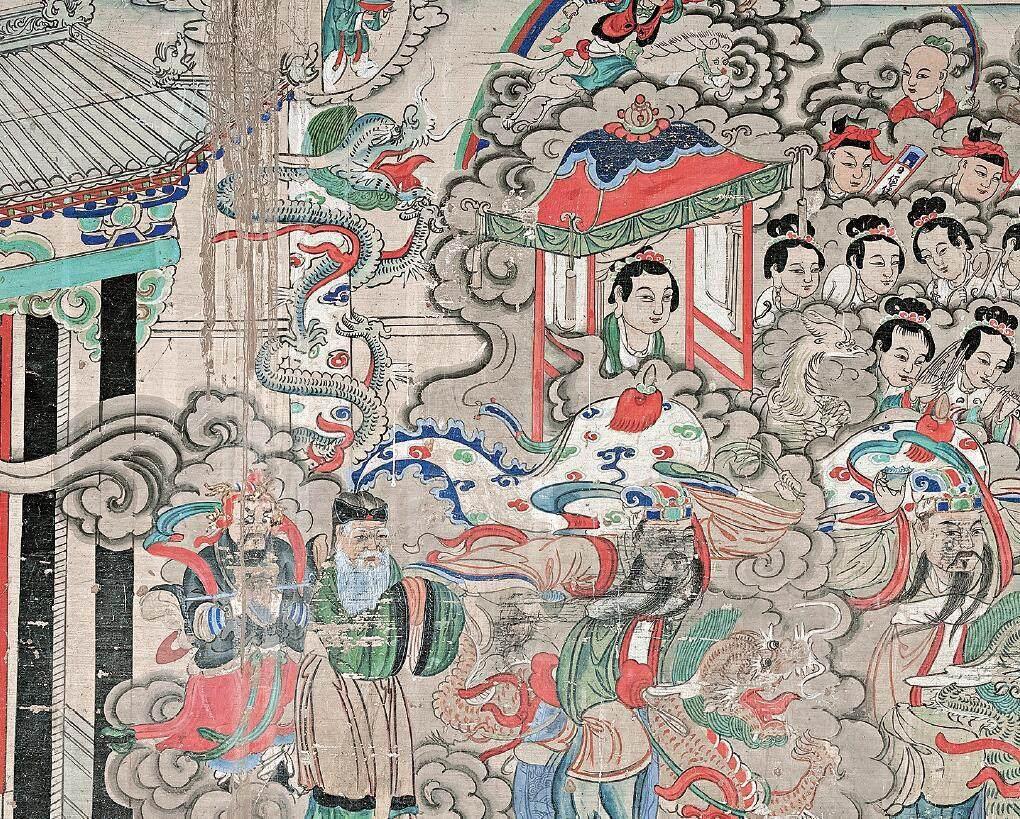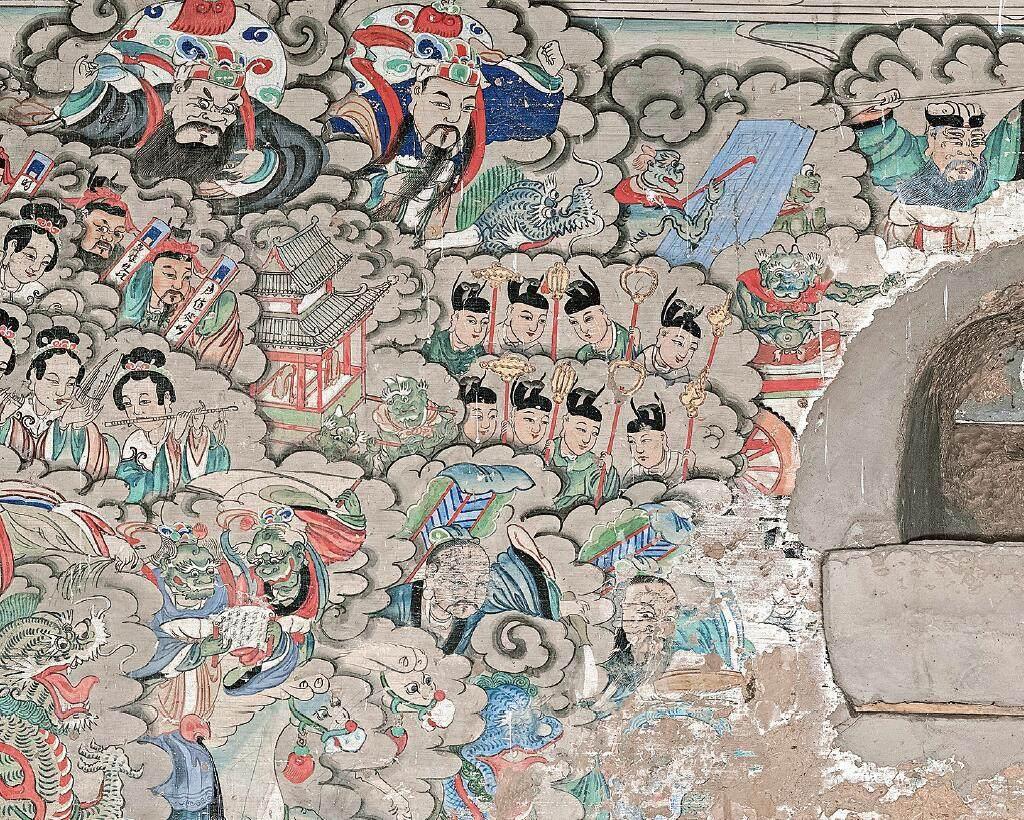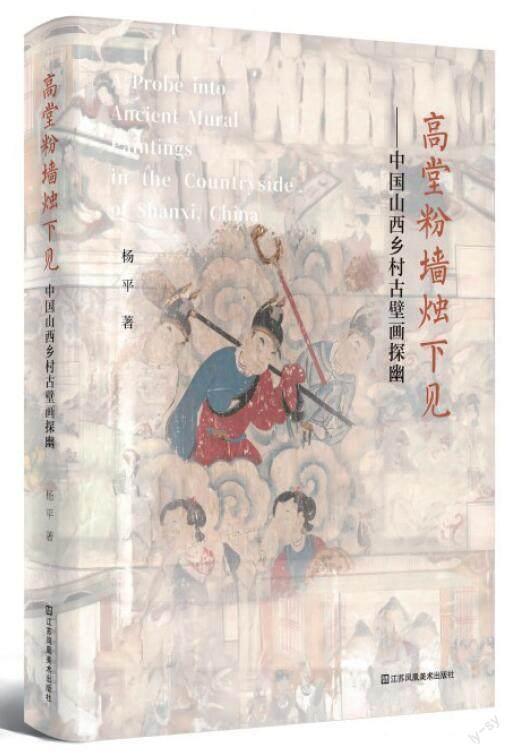Candlelight Tales in the Whitewashed Hall



The author documents a nearly decade-long journey to discover the village murals of Shanxi, comprising over 70% of Chinas existing ancient wall paintings, presenting the current state of classical culture preservation in these villages and their challenges. At the same time, the book showcases over 20 temple murals worth admiring, which may already be disappearing. This is a book with a strong sense of on-site experience, visual impact, and the power to inspire readers to protect traditional culture.
Yang Ping
Yang Ping formerly served as the director of the Zhejiang correspondent station of the China Council for the Promotion of International Trade and the Newspaper of China Trade News, the director of the Zhejiang office of Chinas Foreign Trade Magazine, the chief editor of the Womens Fashion Magazine, the publisher of Around the World Magazine, and other positions. She is currently the art director of Hangzhou Grand Perspective Cultural Communication Co., Ltd., specializing in exploring, organizing, and researching Shanxis classical culture.
In more than ten years of working in the field, I have encountered many things that I will never forget in life: the big sister in Lichuan of Jin City who invited us to eat buns, the old man and the old lady in the New Guangwu City of Xinzhou who roasted sweet potatoes for us, the master on the hillside of Yu County in Yangquan who gave us raw peppers to eat, the big sister in the deep mountain who made fried cakes for us. Although it was hard to travel around, the old ladys greeting like a family member always made me forget the fatigue and look back from the distant Hangzhou again and again. Entering the old ladys courtyard, we sat down on the small stools by the low table outside the kitchen door. “Have some of the watermelons I grew first. Our soil here is excellent, making the watermelons taste soft and sweet. Enjoy these while I go cook some noodles for you. The noodles are something youve never tried before, a mix of bean flour, fine flour, and wheat flour.”
“You must be over seventy, still farming?”
“Im seventy-three this year, still in good health and able to work.”
“Do you live alone?”
“My husband passed away a couple of years ago, and all four of my daughters live in the city. I live alone in our village, enjoying the peace and quiet, and the fresh air,” the old lady chatted while cooking noodles.
I stepped into the small kitchen, a modest space with a small stove and a little iron pot boiling noodles. On one side, a large porcelain bowl held stir-fried tomatoes and eggs, and various household items like jars and basins sat on the countertop.
Smooth, delicate, and emitting a tempting noodle fragrance, the “northwest big bowl noodles,” with the pure-tasting scrambled eggs with tomatoes (that had enough sunlight) added on top, were beautiful and refreshing. It was impossible to describe in words. I still cant forget that bowl of noodles. “Delicious, really delicious! I havent eaten such delicious noodles since I was a child.” Xiao Hou, who called himself a “noodle expert” (his father was a chef), praised it endlessly and finished a bowl of noodles in a short while. Unable to resist the old ladys urging, he had another half bowl.
“Eat some more, fill yourself up; you still have to work.” Unable to withstand her encouragement or to resist the temptation of the noodles, I also broke my record for appetite. “These noodles were gifts from my daughter and son-in-law. I often eat them.” The old lady reassured us when we apologized for not leaving her a single noodle and cooked herself a pack of instant noodles.
After the meal, listening to the old ladys advice, we went to the kang in her north cave to rest for a while. The room was clean and tidy, the kang was comfortable and cool, and we chatted with her for a long time, exchanged phone numbers, and invited her to stay in Hangzhou for a while. Afraid of disturbing her nap and afraid of losing my spirit, I didnt linger on her kang for too long, came out and continued to work for a while, and wandered around the village twice, making a thorough understanding of the layout and valuable buildings of the village, before leaving.
Knowing that the old lady liked to do cloth work to pass the time, I later asked my younger siblings who worked in a foreign trade clothing factory to send her a large bag of various fabrics, and asked Xiao Dou from the county tourism bureau to call a car to send them to her. The old lady called and said that the city people have different tastes, and it would be better if she could get some red and green fabrics — I really liked her straightforwardness and entrusted a friend who made high-end brand name clothing, asking her to collect some bright fabrics and mail them to her, and she agreed. I was entangled by other things and didnt ask my friend if it was done properly. The old lady called several times, asking me when I would go back. I promised several times, saying that I would go back in the autumn, but I havent made it yet.
...
To be honest, there are not many people who understand my concern for Luoquan Fort, because few people pay attention to her past. Some people only go to step on her shoulders to take a look at the oasis in the Yellow River that left a story that cant stand the historical verification. Some people despise her current decay, flash past, glance lightly, but never want to spend a little bit of thought to visit her past that was very important to the local and even the whole of Shanxis security — this fort was the best lookout point for Ming soldiers to observe the abnormal actions of the Mongols on the opposite bank of the river. In late autumn of 1518, the Zhengde Emperor also inspected Louzi Camp under Luoquan Fort.
The most glorious period of Luoquan Fort was the Ming Dynasty. At that time, young and strong soldiers were stationed in the fort, guarding against the Mongols who attacked from the Ordos grassland on the opposite side day and night. Later, some soldiers brought their families, settled and cultivated here, branched out, and Luoquan Fort became more and more prosperous.
In the second half of the 20th century, Luoquan Fort, which no longer had a defensive function, was damaged and destroyed by human beings. People peeled off the bricks and surrounded the sheep pen, pig pen, and cattle pen. When life was hardest, the villagers also dug caves in the city wall to shelter them from the wind and rain. Nowadays, most villagers have abandoned or permanently left this home that their ancestors operated for hundreds of years, moving to places where life is more convenient.
Candlelight Tales in the Whitewashed Hall
Yang Ping
Jiangsu Phoenix Fine Arts Publishing House
March 2023
98.00 (CNY)

